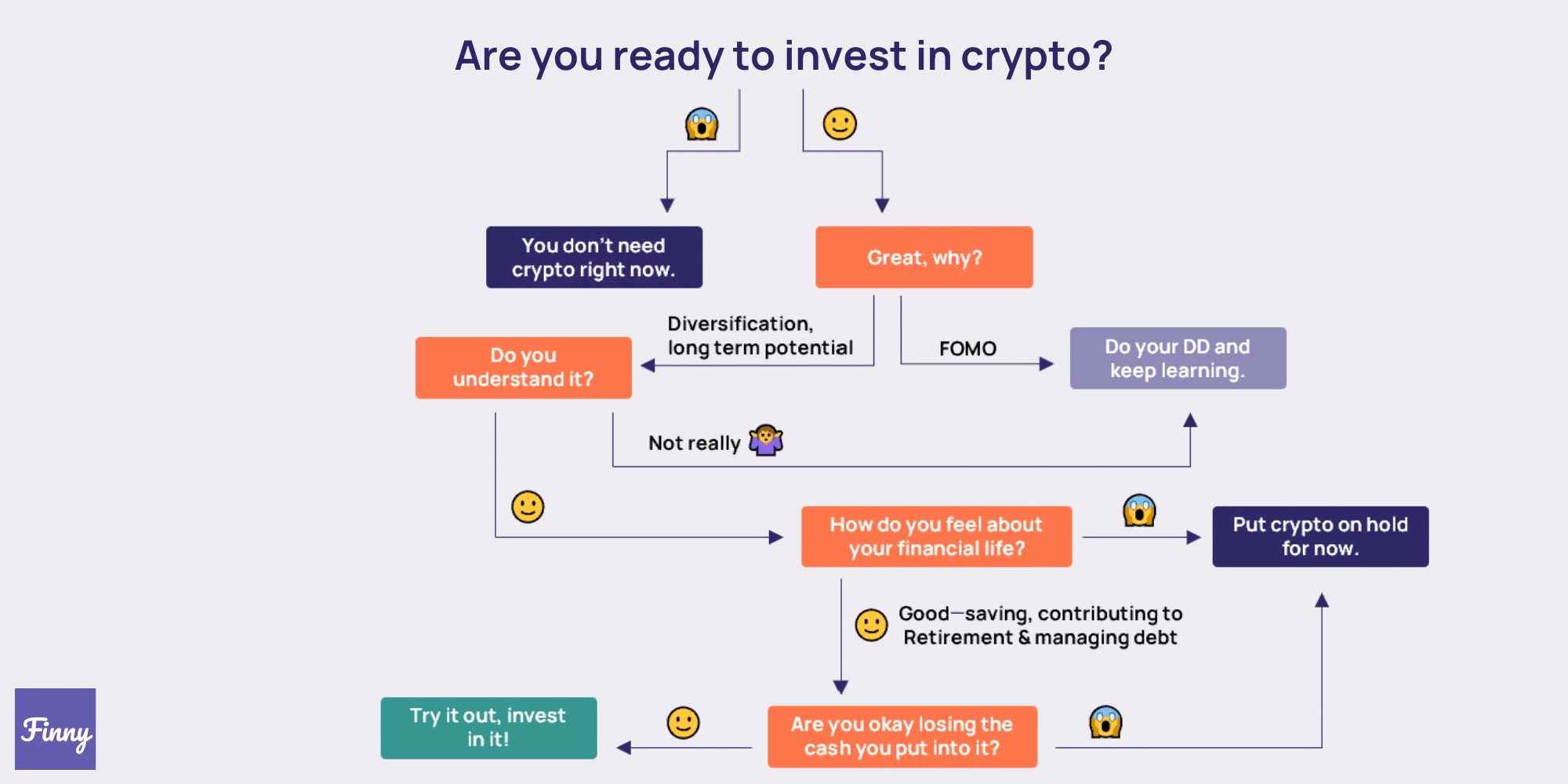| When it comes to cryptocurrencies, prospective investors tend to take on rests on a spectrum of sorts. On one end, you've got the measured, conservative approach that may be quite leery of this new asset class, and on the other, the YOLO, let's take it to the moon camp. Neither of these outlooks are wrong per se, but perhaps there's a happy medium to be found. We should obviously try to understand the things we invest in, but to what extent? With something as intricate as crypto, how do we know if we're ready? Look at it as a spectrum They say we should understand what we invest, but insofar as what? You might understand you're buying shares of Apple, but how much do you know about the process of building a brand new Macbook? Do you know what the company's quick ratio is, who their marketing director is, or any number of obscure facts about the business? As we can see, it's very easy to take this too far. We don't need to have in-depth knowledge of the inner workings of each and every company we invest in, because although it would be really impressive, it's just impractical. Crypto can be viewed similarly. The basics and the risk Cryptocurrency is different, in some ways vastly so, but also similar in terms of utility to the average investor. Its uniqueness comes with unique risks, and of course its own terminology too. So, let's distill it down to a few essentials you should understand before investing in crypto. - Volatility: Stocks can be volatile, just read topic one. Crypto though, in most cases, is volatile. Reasons for this vary by coin, with Bitcoin's volatility being due to a low float, concentrated holdings, and the fact that its intrinsic value is uncertain. For other coins, reasons may be similar or different, but the inherent volatility of an emerging asset is the same.
- Purpose: Each crypto project has its own goal, and the coins that coincide with them exist as incentive for the validators who support their decentralized system. You don't need to understand every crypto's mission statement, but at least get the gist of the one you want to invest in.
- Regulation: Crypto is an asset for now, and you will pay capital gains taxes on it if applicable. Outside of that, oversight and regulation are limited, but improving.
- Security: Crypto exchanges where coins can be bought often ensure your dollars on the platform, but not your crypto. So, there's a slight risk you could lose your crypto in the event of a hack. This is the risk of keeping your coins in a hot wallet, and you should understand the difference between that and cold storage before investing.
If you're still not sure about crypto, try this decision tree: 
💡And if you haven't already, take this bite-size lesson on crypto basics: |
No comments:
Post a Comment